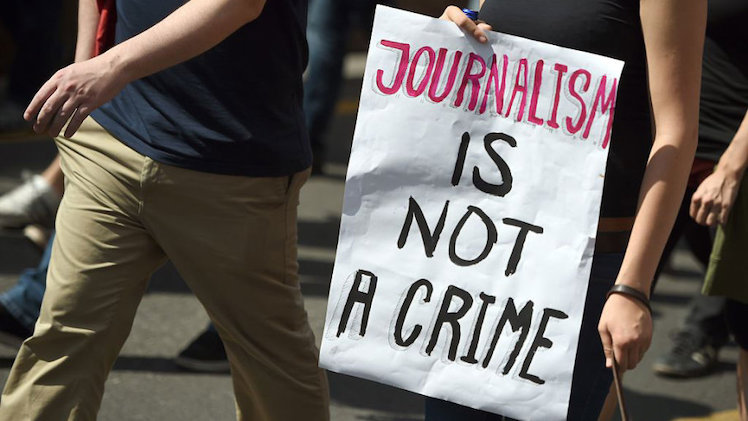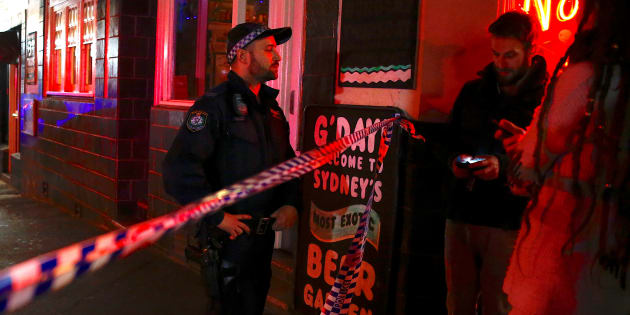It will be ‘close to impossible’ to resolve complaints against 1,500 police brought into Brisbane for the G20, lawyer says
The 1,500 New Zealand and interstate police sent to bolster G20 security in Brisbane will be exempt from local investigation of public complaints.
Any allegations of mistreatment by those officers, who will make up a quarter of the largest peacetime security force in Australian history, would instead have to be pursued with oversight bodies in Auckland, Sydney and elsewhere.
While outside officers are slated to play a background role, lawyers say their legal status affords them virtual immunity from disciplinary action over any involvement in rogue policing that, along with violence from protesters, marred previous summits.
The NZ and interstate police, who will don G20 police caps while retaining their own respective uniforms, will be sworn in temporarily as Queensland police.
But it is understood those contingents will carry their own officers to handle public complaints while in Queensland, with the state’s Crime and Corruption Commission (CCC) retaining oversight “in limited circumstances”.
A CCC spokesman said this could include scenarios where “their conduct adversely affects the performance of functions or exercise of powers of the Queensland police service or a QPS officer”.
“The CCC understands that interstate and New Zealand police jurisdictions will have officers in Queensland to manage any complaints that may arise which could affect seconded officers,” he said.
A spokeswoman for the Independent Police Conduct Authority (IPCA) in NZ said it would “retain jurisdiction over any New Zealand police officers for scrutiny of their conduct in the G20”.
“Members of the public wishing to pursue a complaint about any alleged misconduct by an NZ officer seconded to the QPS could complain to the IPCA,” she said.
A prominent Queensland criminal defence solicitor, Michael Bosscher, who is admitted to practice in four other states and territories, said the prospect of resolving a complaint against outside police was “close to impossible”.
“Trying to follow through a complaint in relation to a non-Queensland police officer, either interstate or internationally, would be an onerous task and unlikely to generate a reasonable outcome,” he said.
“Any person operating as a law enforcement officer in Queensland, regardless of where they come from, should be subject to the same scrutiny and oversight as a Queensland police officer or an Australian federal police officer.”
Legal observers are critical of the wide-ranging powers given to police under the G20 security act. Officers can declare assemblies unlawful if they disrupt the summit or if one person in a crowd commits a property crime, such as graffiti.
This raises another concern about the lack of scrutiny of the lawfulness of arrests of people who might be released without charge, or receive notices excluding them from the city centre without having to appear before a magistrate.
Bosscher said police had been given “unprecedented powers under this piece of legislation and as is nearly always the case, the necessary checks and balances that accompany those types of powers have not been put in place”.
“This leaves members of the public open to wrongful arrest with no right of recourse and heavy-handed tactics and abusive actions by police not subject to disciplinary proceedings,” he said.
A team of 60 Queensland solicitors has undergone training to act as independent legal observers, in part to head off a repeat of scenes during Toronto and London G20 summits when police removed identification during clashes with protesters to evade complaints.
The Queensland Council for Civil Liberties has raised concerns that lack of awareness of the depth of police powers during G20 could lead to arrests of peaceful protesters and ordinary citizens.
Many of the 1,100 people arrested in Toronto in 2010 were held for periods of up to 17 hours before being released without charge.
The Toronto Star documented complaints ranging from heavy-handed arrests of uninvolved people caught on the fringe of protest scenes to alleged rape threats made to an independent journalist.
In Brisbane, as in Toronto, judicial oversight will only extend those who are charged and appear via videolink before magistrates working 24-hour shifts from 10 to 17 November.
The chief magistrate, Ray Rinaudo, has ordered that arrangements be made for televising proceedings via videolink while the courts are physically closed to the public from 15 to 17 November.
His office has not yet released details of how proceedings will be viewed remotely.
The assistant police commissioner Katarina Carroll, who is overseeing police operations for G20, has said authorities want those arrested “processed and in front of a magistrate as soon as possible”.
She told the Courier-Mail on Tuesday the 24-hour courts were set up “so that those arrested are not detained for longer than is necessary.”
Carroll also revealed this week that at least two people would be banned from the “declared area” in Brisbane’s city centre. The “prohibited persons” have the option of appealing against the decision.
But under the G20 act, police may choose not to reveal the reasons for their decision if that would threaten national security, the safety of informants, relations with another country or break Australian laws.
If police cannot locate those they have banned, they are permitted under the act to circulate their names and photographs to media for publication.

















You must be logged in to post a comment.